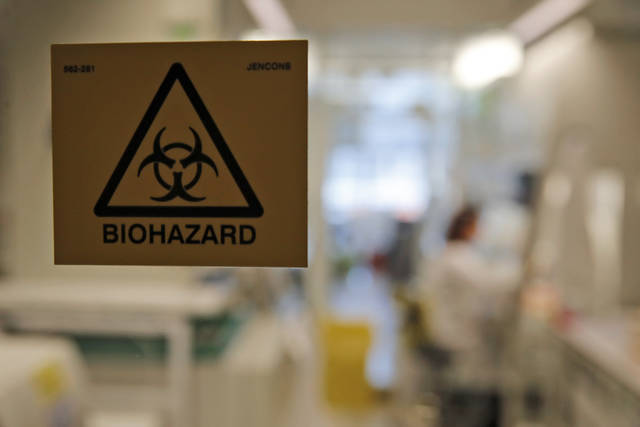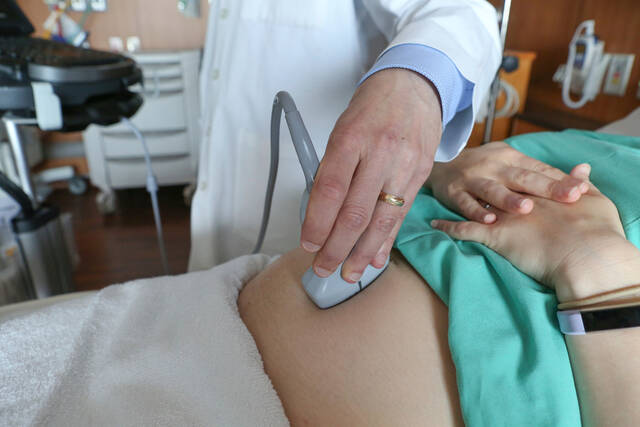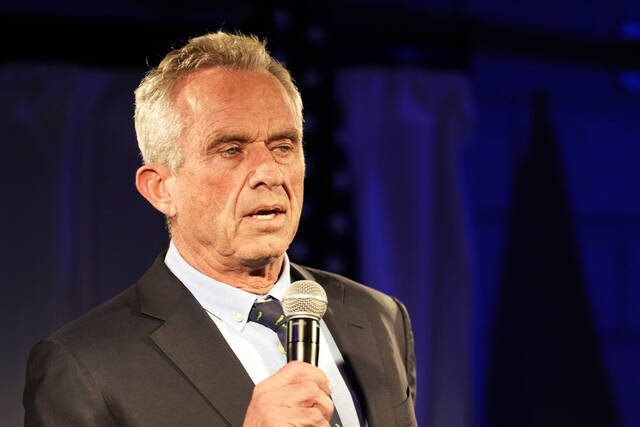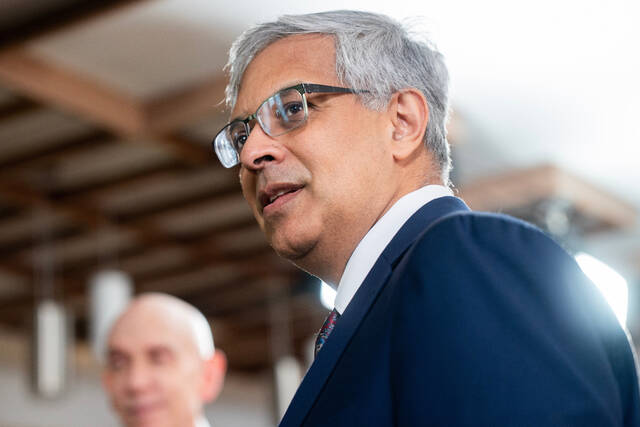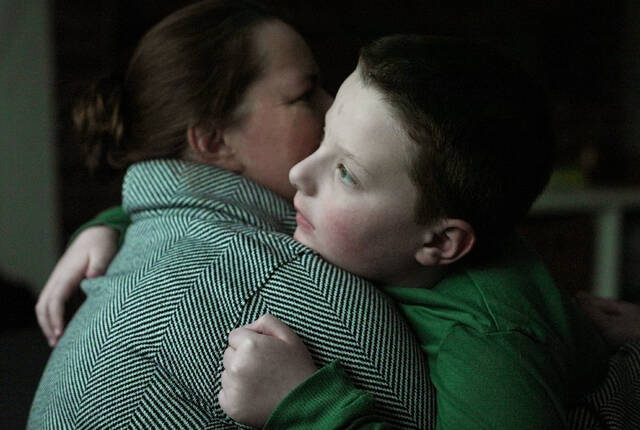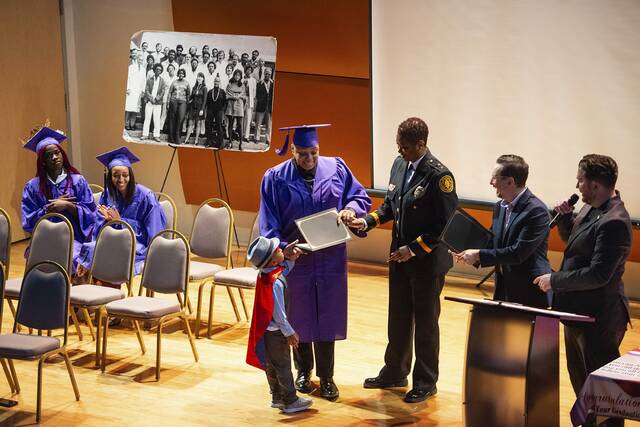A global storm of online posts about the coronavirus virus prompted public health experts to fight a war on two fronts — one against the respiratory virus that surfaced in Wuhan, China, late last year, and a second one against a sea of misinformation about it.
Officials from the World Health Organization called the maelstrom of social media posts about coronavirus the world’s first “infodemic.” In addition to their normal responses, they have deployed special teams to track and respond to unfounded rumors that surfaced online.
“You have the ability to monitor and watch what’s happening in real time,” said Amy Hartman, infectious diseases and microbiology professor at Pitt’s Center for Vaccine Research during a panel talk on the outbreak Wednesday night at Pitt’s Oakland campus.
“But that means that there is also a lot of misinformation, and you have to be careful about what information you’re taking in and using your judgment to determine its accuracy, realizing that the information reported at first may be inaccurate because it’s early and incomplete.”
It’s not the first time social media has come into play in an international public health crisis.
Six years ago, when the Ebola virus resurfaced, Twitter blew up, ratcheting up fears of the deadly virus to new levels. Time magazine reported Twitter mentions of Ebola exploded from 100 per minute to 6,000 per minute overnight between Sept. 30 and Oct. 1, 2014.
Since then, the growing reach of Facebook, Twitter, Instagram, WhatsApp and other social media platforms, coupled with the ease of launching false information, has magnified the power of misinformation many times over, stoking health, security and economic fears to new highs and complicating the work of public health experts.
Jevin West, an associate professor at the University of Washington School of Information and Director of its Center for an Informed Public, tracks the spread and impact of misinformation. He said the vacuum of knowledge in an unfolding crisis coupled with genuine public concern about health issues creates a perfect environment for the spread of misinformation online.
“When it comes to health, people want to know and they want to know in real time,” West said. “It is really hard in circumstances like this because there is a lot of uncertainty. There are bad actors out there who can take advantage of that and make money or throw out some sort of propaganda point. … Today there are armies of bots ready to take advantage of these situations there are individuals sitting on the sidelines ready to put out the next false headlines.”
But West stressed that the need for information and the desire to share it and protect those we care about create a vulnerability to misinformation in these situations.
“It’s not just the bots and the bad guys, it’s the users on the other end of social media,” he said. “We’re out there looking for answers.”
Margaret Harris of the World Health Organization said the international organization’s communications teams are working around the clock to staunch the flow of rumor and falsity.
They also are using their social media accounts on the very platforms they are policing, to get out accurate information.
Even Facebook, notorious as the wild west of misinformation, has joined the fight. The network that boasts more than 2.5 billion users worldwide tasked its third-party fact checkers to concentrate on coronavirusposts.
The company that has come under increasing criticism worldwide for allowing conspiracy theories and false information posts to spread, agreed to alert users to false information about coronavirus and to remove conspiracy theories and false information flagged by local and international health experts.
On Jan. 31, U.S. Health Secretary Alex Azar declared the outbreak to be a public health emergency — “elevating the importance of this outbreak and freeing up some federal resources,” said Kristen Mertz, medical epidemiologist with the Allegheny County Health Department.
A travel ban is in place for any Chinese foreign nationals who have tracked to China in the past two weeks.
“Because there’s so much unknown about this virus, we’ve adopted some more aggressive measures,” Mertz said.
Public health officials have emphasized there is not evidence that Asian American/Pacific Islander individuals are at higher risk of carrying the virus than others.
“Focusing on places or people of origin, particularly when you’re thinking about the prevention or the global spread of disease,” said university panelist Mari Weber, a Pitt history professor, “really has to be done very carefully and very conscientiously — in order to avoid stigmatizing a population, or lumping an entire category of human population together as somehow at risk or as somehow threatening based on this particular disease.”
There have been no suspected cases of the disease in Pennsylvania, where the seasonal flu remains a deadlier risk.
“There’s pretty much universal agreement that there will be more cases … there’s already probably more cases than we know about. Nobody knows exactly what will happen,” Mertz said. “But the idea is to try to slow the spread so that a new vaccine can be developed and new medications can be developed.”
Pitt researchers will be among those working on possible vaccines, with the Centers for Disease Control and Prevention set to send samples to its biocontainment laboratory as early as this week.
Deb Erdley is a Tribune-Review staff writer. You can contact Deb at 724-850-1209, derdley@tribweb.com or via Twitter @deberdley_trib. Natasha Lindstrom is a Tribune-Review staff writer. You can contact Natasha at 412-380-8514, nlindstrom@tribweb.com or via Twitter @NewsNatasha.


